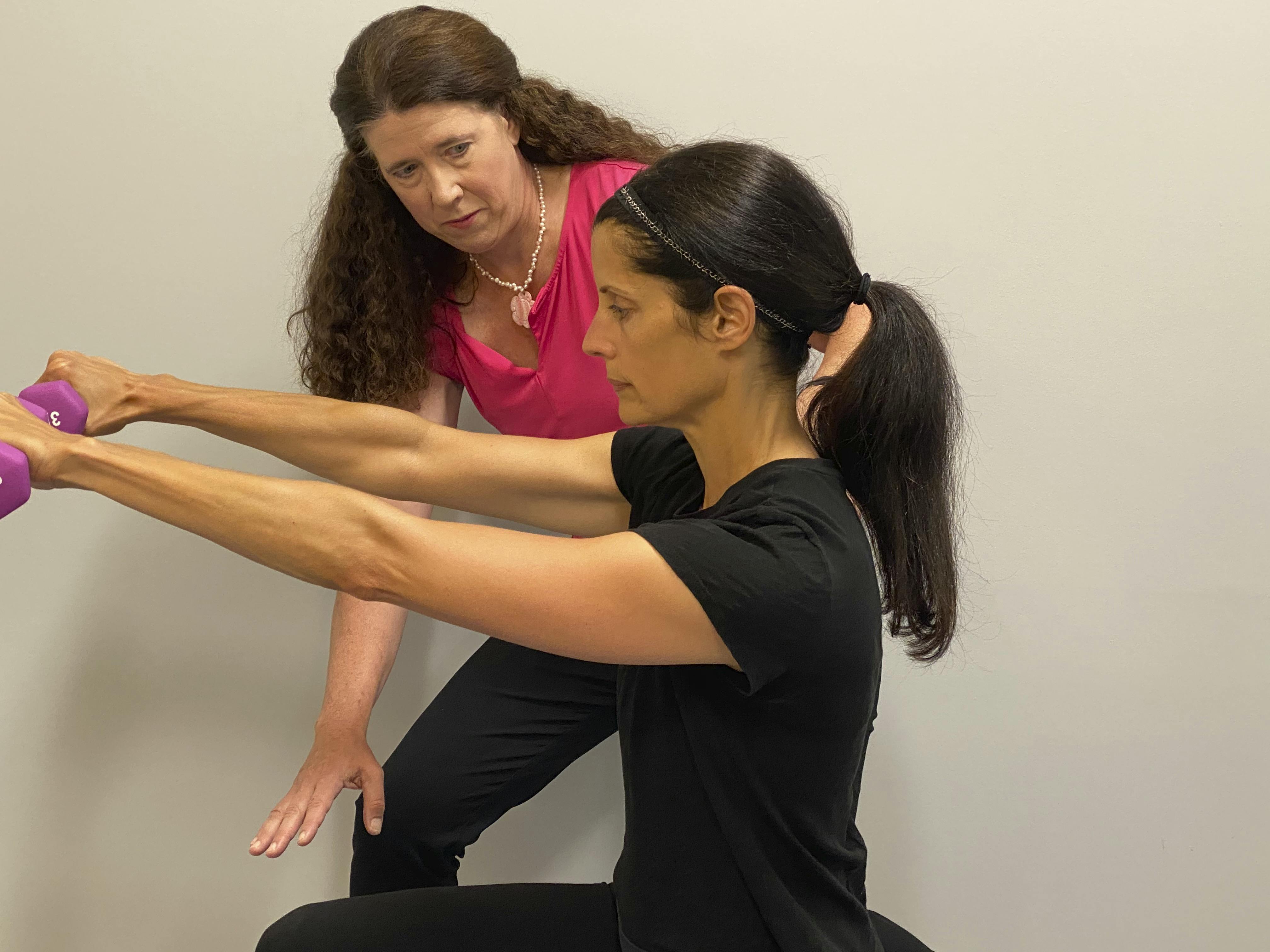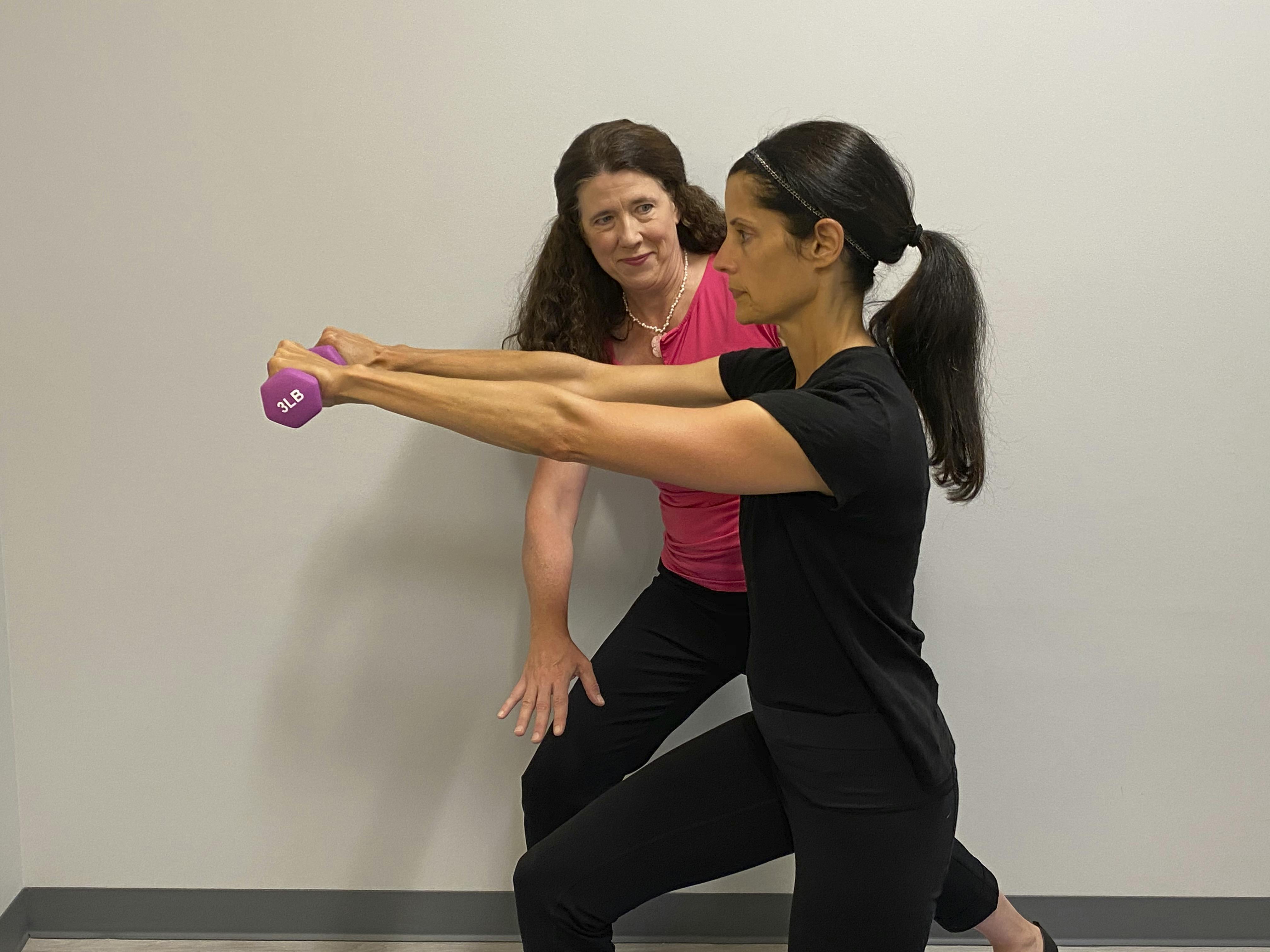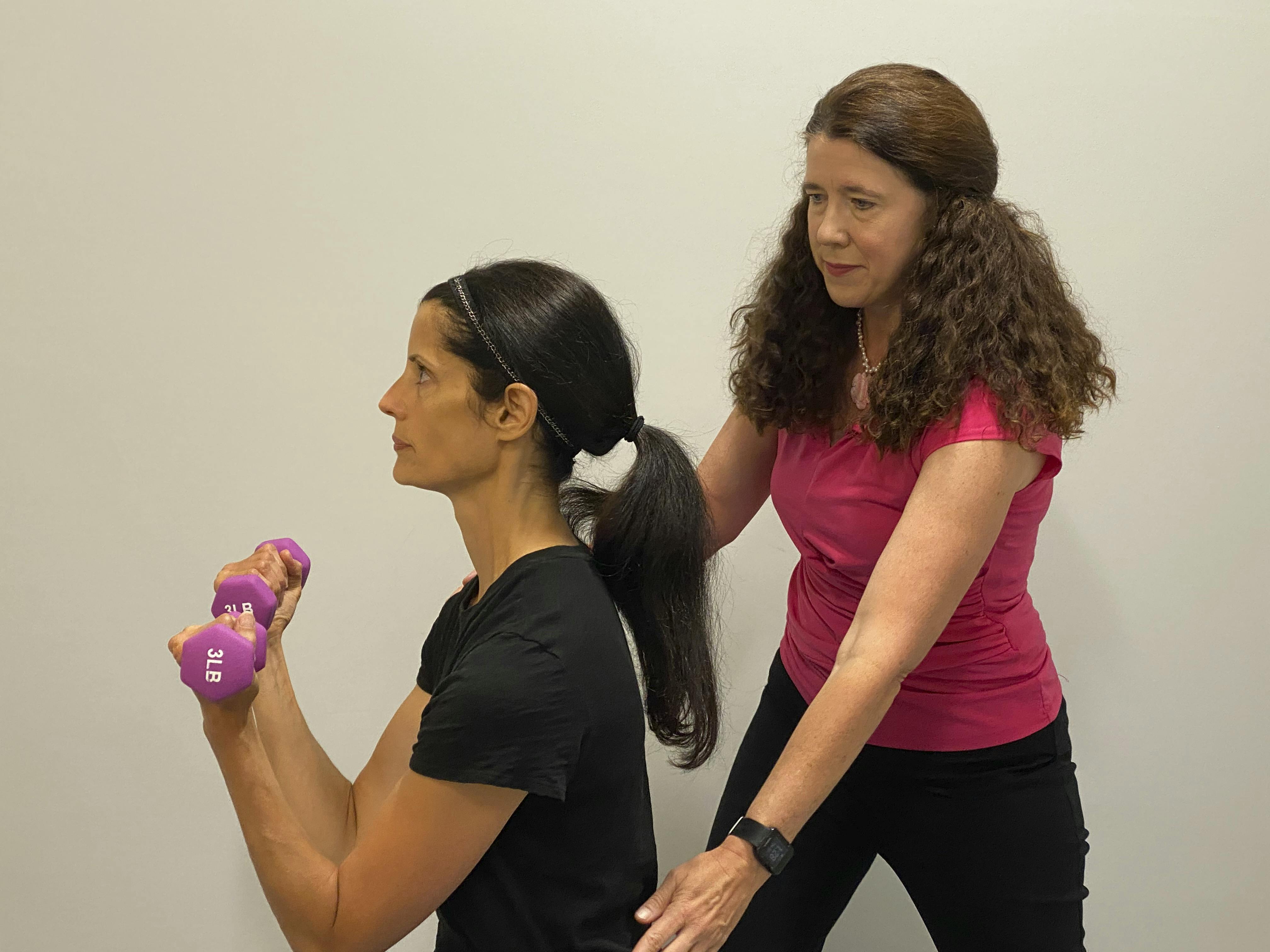Bone health, osteopenia, osteoporosis:
With regard to bone health, at Purple Mountain Physical Therapy we believe in being proactive to maintain your bone health. Have you thought about going to a physical therapist to learn what you can do to preserve and build your bones? Our PTs have advanced training in osteoporosis, the recommended exercises for bone health, bone safety considerations when exercising, women’s health and menopause, all key areas of knowledge related to bone health. To learn more about our bone health program, contact us here.

- We teach you which exercises are best to maintain your posture and avoid a thoracic spine hunch.
- We emphasize safety in your workout routine and can advise you which exercises that you should avoid and how to modify things you enjoy so that your bones are not at risk for fracture, especially if you have osteopenia or osteoporosis
- We advise you on lifestyle choices to promote bone preservation and bone health
- We work with women and men who have bone health challenges, including young, adolescent females who have RED-S, relative energy deficiency in sport.
- We teach you what to do, you take this knowledge home and implement it with confidence!

We can teach you what exercises are best and safest to preserve and build bone health! At Purple Mountain physical therapy, a bone health consultation includes a review of your exercise habits, assessment of your balance and strength, teaches you better bone health exercises and advises you on lifestyle choices to optimize your bone health. Do you have osteopenia? If so, what are you doing about it beyond perhaps taking a medication and getting a bone density scan? Do you know if your lifestyle routine is optimal to support your bones? We help you know exactly what to do and how to do it. Contact us here to learn more.
Osteoporotic fractures can occur as a result of bone density deficiency, balance problems and strength deficits. Physical Therapy to improve your balance, posture, strength and fitness levels can help your bone health. Sedentary lifestyles, poor nutritional status, smoking, aging and low estrogen levels all contribute to deterioration of bone health. And we aren’t saying you need to continually come to physical therapy to complete your exercises! Our role is to teach you what to do and you can implement these exercises into your fitness routine.

Proactive lifestyle choices can help you optimize your bone health. Your physical therapist at Purple Mountain Physical Therapy will provide you with a consultation regarding lifestyle choices and fitness measures, including important safety considerations, that would be recommended to optimize your bone health and to combat the deterioration in posture and stature that occurs with advanced osteoporosis. We’ve worked with many women who have osteopenia and osteoporosis to advise them on safe exercise choices and lifestyle modifications. In fact, we’ve often had our patients who have osteopenia report to us that they perform some exercises at their gym that we think could be placing them at risk for bone fracture. We can help guide you to make safer choices. These same women are often not completing very important exercises that are known to support posture, bone health and to combat the musculoskeletal changes that occur with bone loss. If you wonder what you should be doing, what would be safe and what is most effective, we offer you expert advice on how to protect your bones, enhance posture and improve balance. Contact us here to get started.

Bone health is a lifelong pursuit. Bone mass in adult life is a measure of the amount of bone we built from conception to maturity, adjusted for normal age-related bone losses. as we build bones for many years and need to foster the strongest, densest bones we can during our formative years of growth. Growing children, adolescents and young adults must maintain proper weight, nutrition and fitness levels to foster good bone growth. Relative energy deficiency in sport (RED-S) (previously called the Female Triad) is a syndrome that some young female athletes experience. RED-S involves the unfortunate combination of poor or inadequate nutritional intake contributing to low energy availability, loss of menstrual cycle (amenorrhea or oligomenorrhea) reflecting insufficient estrogen levels to build bones and decreased bone mineral density (either osteoporosis or osteopenia). We must be proactive to identify when these features are happening in our young, female athletes and help them develop a plan forward that optimizes their wellbeing, sleep, rest, endocrine system, nutritional status, fitness habits (not overdoing it!) and recovery. Moms, if you are concerned about your daughter’s bone health and want a professional to support your efforts to educate and encourage her to adopt a bone-healthy lifestyle, come to Purple Mountain Physical Therapy, we’ve got this covered!

As a woman enters her perimenopause and menopausal years, she should be thinking about bone health to avoid osteopenia and osteoporosis. Osteoporosis is a health problem globally and a public health threat to more than 44 million Americans, 80% of them being women. Fractures of the spine are the leading place for an osteoporotic fracture to occur, with the hip and wrist the 2nd and 3rd most common locations. However, any bone is at risk if you have osteoporosis. The spine is at greater risk because it is comprised of trabecular bone, which is also called spongy bone because it resembles a sponge’s interconnected lattice interior with gaps, cavities and holes within. Trabecular bone is more metabolically active than cortical bone (the bone found more commonly in the long bones of the body). The metabolic nature of trabecular bone causes it to have short-term changes in response to hormone levels, in particular estrogen and glucocorticoids. Our adrenal gland and pituitary play important roles in glucocorticoid production. Cortisol is a commonly recognized glucocorticoid that plays an important role in the body’s response to stress. So, yes, stress plays a role in your bone health. Immediately post-menopause women have trabecular bone loss occur at a rate triple that of cortical bone loss. This is our normal metabolic nature and not necessarily alarming if we have excellent lifestyle factors (sleep, rest, stress management, nutrition, fitness levels), health, wellbeing, endocrine and immunologic function. Physical Therapy can help guide you in optimizing in a number of these risk areas. And, we are always happy to collaborate with your other medical providers, whether they are endocrinologists, orthopedists, urologist, immunologist, midlife/menopause specialist, OBGyne, family doctor, pediatrician or other specialty; bone health can take multidisciplinary care. Being proactive with what you can control is one important step towards arming yourself with strong bones! Let’s not freely give our strong bones away as we sit endlessly at our desks for hours on end. Protecting bone health is much more complex than taking a calcium supplement! We can help you gain confidence in knowing what to do to foster bone health.
Still not certain if you might benefit from a consultation with a physical therapist for your bone health? We are here to answer your questions, give us a call: (616) 516-4334 or submit this online inquiry and we will be in touch. We wish you strong bones and a happy, healthy, active life!
